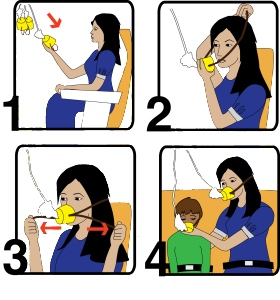By Anthony Naguiat, LMHC
Greetings everyone. Every year, as we near the end of the holiday season and prepare to start a new year, we often make “resolutions” that we would like to start, or do more of, the following year. Sometimes these resolutions become quickly forgotten, or fall by the wayside when life becomes hectic. I would guess that a large number of these promises to ourselves relate to improving ourselves in some way by doing less or more of something.
I believe we make these resolutions with good intention, and perhaps if we look at them as gradual lifestyle changes rather than having unrealistic or immediate expectations of changes to be made “right now,” the chances of failing would be less. Truly, one lifestyle change I feel we should all consider making, or improving upon, would be self-care. Whether you notice the lack of self-care in yourself, or see it in others, hopefully this post can be helpful in increasing your awareness.
What is self-care?
Self-care can likely mean many things, depending on who you ask. Some may relate self-care to activities that help them be healthy physically, such as exercise, or a balanced diet. Others may feel that self-care means doing things that lead to good emotional and/or mental health, such as meditation, going to counseling, participating in fun activities, or spending time with those close to them. Regardless of how people define and engage in self-care, one commonality exists: We all need self-care in our lives on a regular basis.
When I work with clients, I often have them visualize the need for self-care in terms of a fuel tank. In order to keep themselves “running,” they must ensure that they are “refueling” by engaging in self-care activities in order to avoid hitting empty.
What is the importance of self-care?
Perhaps the image below will look familiar to those of you who have traveled by plane before.
Think back to the instructions that you are given by the attendants: “Please make sure to secure your own mask BEFORE assisting others.” When related to our personal lives, this instruction seems to make sense, doesn’t it? Because really, how can we be of any effective help to others if we are running low on “fuel?” And yet, we tend to do the exact opposite, taking care of everyone and everything else, even when the “Refill fuel” light came on a long time ago, effectively ignoring any signs that tell us to slow down. A lot of times, we may also be too busy to notice these warning signs. The importance of being mindful about our own needs cannot be stressed enough.
If we push our own needs aside for too long, the lack of self-care can manifest in several ways. Think about periods in your life where you put favors, tasks, or responsibilities (whether they are yours, or if you are helping someone else) as the number one priority, even if you truly felt like you could not do anymore. How did you feel, or what did you notice?
Perhaps you noticed fatigue, lack of motivation, constant headaches, or felt more stressed? Maybe you felt, or had others point out, that you were more anxious or irritable than normal? How about interpersonal relationships…notice an increase in conflicts, or withdrawing more than usual? Maybe you felt sad or “down” for no readily apparent reason. Maybe indifference had reared its head, and you’ve noticed yourself saying “I’m done!” or “Whatever!” with more frequency. These are just a few examples.
To be continued…The next blog post will focus on barriers to self-care, as well as some suggestions and strategies to increase self-care. Wishing you all the best until the next post.
Regards,
Anthony Naguiat, LMHC
**Blog postings are not intended to be a substitute for professional counseling services. If you felt that the information in this post is something you would like to explore further in-person in a therapeutic setting, please use the contact me link for a free consultation to discuss your needs, or to set up a future session**
